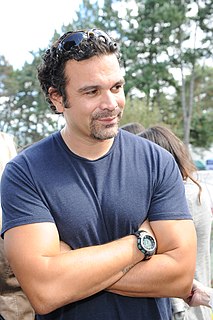A Quote by Bill Gates
The Global Fund is a central player in the progress being achieved on HIV, TB and malaria. It channels resources to help countries fight these diseases. I believe in its impact because I have seen it firsthand.
Related Quotes
Poverty - the greatest cause of human suffering on the planet - is itself exacerbated by conflict, competition for resources, injustice, even the global downturn and climate change. Diseases like AIDS, TB and malaria cannot be tackled without adequate resources. So you see everything is connected. In order to address any major cause of human suffering, we have to work together across many fronts.
If you take the burden of health care, of diseases off the backs of some other countries, it gives them a chance to use their own very limited resources in ways that help their people. And also there's a hopelessness associated with deadly diseases, that if that can be alleviated, people can build their own economies in their own countries and they'll be less reliant on the developed world for help.
Africa needs more funding to continue to fight all of those diseases. We are losing more than 1.3 million young children under the age of five every year because of malaria. We've already lost 25 million people to the pandemic of HIV-AIDS. More people are dying now from typhoid fever. Diabetes is on the rise.
Look at the ozone story. As long as it was the southern hemisphere that was being threatened, there was very little talk about it. When it was discovered in the north, very quickly actions were taken to do something about it. Right now there's discussion of putting serious effort into developing a malaria vaccine, because global warming might extend malaria to the rich countries, so something should be done about it.
The monetary impacts of malaria from the household to the global level are significant. Malaria tends to strike during harvest season, rendering families too sick and too weak to perform the work necessary to earn a living. Malaria-stricken families spend an average of over a quarter of their income on malaria treatment.


































